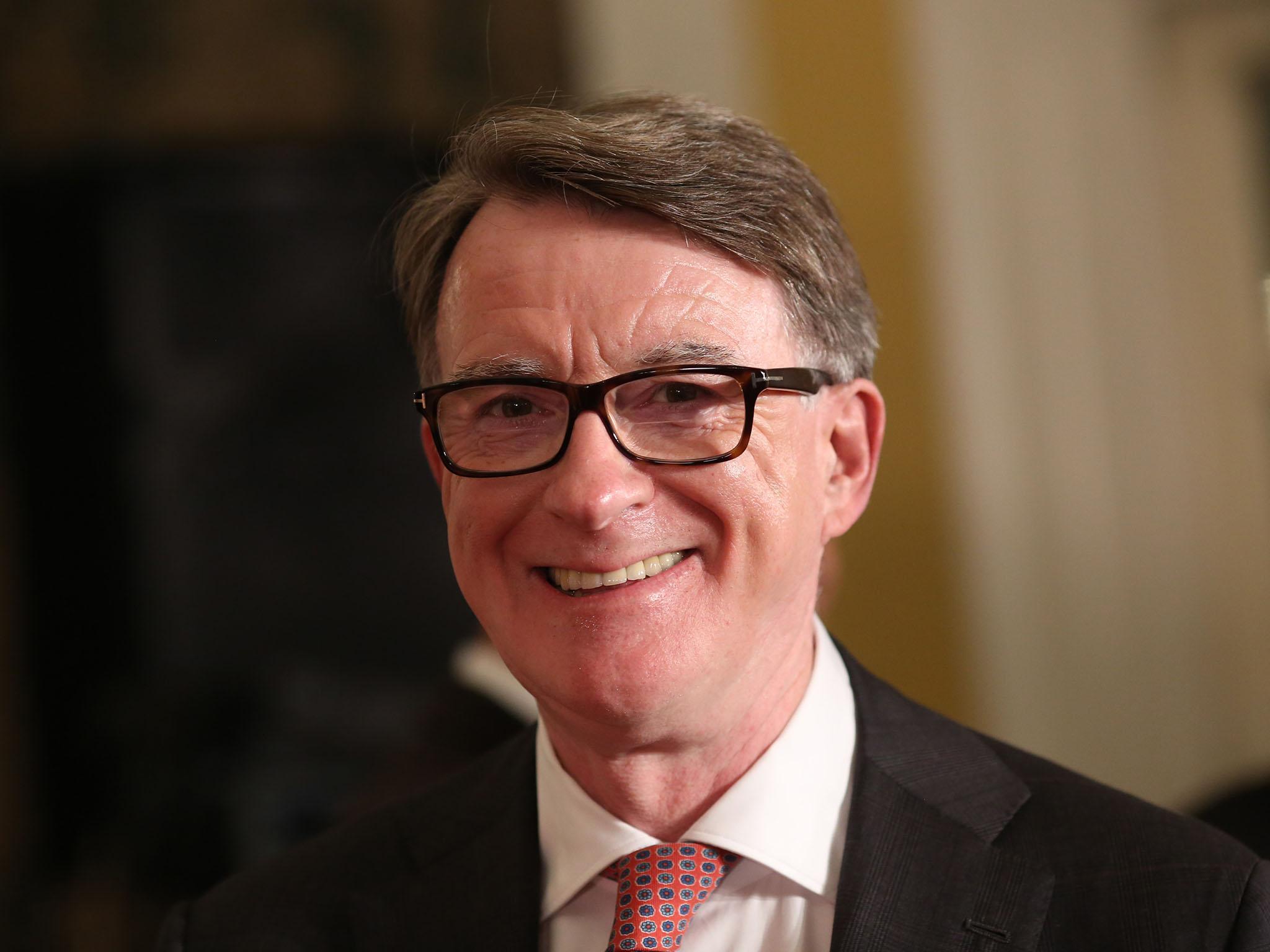The Brexit we're headed for isn't the one that was offered – so we need a second referendum or a general election
The former Business Secretary and EU commissioner argues that supporters of EU membership must persuade Leave voters not that they were duped but that the Brexit being created is not what they were offered


Your support helps us to tell the story
From reproductive rights to climate change to Big Tech, The Independent is on the ground when the story is developing. Whether it's investigating the financials of Elon Musk's pro-Trump PAC or producing our latest documentary, 'The A Word', which shines a light on the American women fighting for reproductive rights, we know how important it is to parse out the facts from the messaging.
At such a critical moment in US history, we need reporters on the ground. Your donation allows us to keep sending journalists to speak to both sides of the story.
The Independent is trusted by Americans across the entire political spectrum. And unlike many other quality news outlets, we choose not to lock Americans out of our reporting and analysis with paywalls. We believe quality journalism should be available to everyone, paid for by those who can afford it.
Your support makes all the difference.The year 2017 was the year of skirting round the core issues of Brexit: 2018 will be the year when Brexit hits reality.
The public may be bored with the subject now, and feeling resigned to a poor outcome, but in 12 months’ time, when the deadline is imminent and minds are concentrated, I do not think the mood will be so relaxed.
In the referendum, Leave campaigners pledged no more free movement of people, control of our borders and laws and, most famously of all, our money back – £350m a week extra for the NHS no less.
It seems a joke now. Theresa May has agreed new future EU payments by Britain of around £40bn (an underestimate in the view of some). There is little mention of controlling migration anymore – indeed our problem may be that too few want to come to work. May has signed up to a role for the European Court long after we leave the EU because Britain will not be ready to separate for years to come.
The biggest betrayal will come over the economy in the long term.
David Davis promised the “exact same benefits” in trade after Brexit. Liam Fox said negotiating new trade deals would be “the easiest thing in history”. May says we can be sure of a “deep and ambitious” future relationship between Britain and the EU.
She may want it but she is going the wrong way about getting it.
If she has learned anything from the last year it must be that the EU holds more cards than we do and that what we are undertaking is not so much a negotiation as a series of choices by us from the limited menu offered by the EU. So much for the Brexiters refrain that “they need us as much as we need them”.
Because of its market size the EU has vastly greater bargaining power. It has more options and therefore greater ability to say no when it wants to reject something.
This means one very large piece of reality when the talks move on to future trade: the deal we are offered will be one constructed on the EU’s terms, on the basis of their rules and standards and will take account of the trade agreements they have with their many other international partners.
Britain will not be offered preferential, bespoke treatment if this means the EU having to reinvent its rulebook to accommodate us and if, according to World Trade Organisation rules, anything the EU offers Britain has to be offered to everyone else with whom it already has agreements.
Officials in Berlin and Paris have told me that they expect to come under domestic pressure from a variety of their home industries to make a deal that safeguards existing cross border trade with Britain. But they are not going to do this at the expense of the rules that will sustain Europe’s internal market in the long term.
To get a trade deal which preserves the trade benefits we have now, May will have to agree to remain firmly within the EU’s regulatory orbit and adhere strictly to its customs rules. This will come at a price because if we leave the EU we will have no further say over the agreement of those rules.
In these circumstances, Britain would be faced with an invidious choice: prioritise our trade and economic interests but do so on Europe’s terms or put our autonomy above everything else and face losing market share in Europe and jobs and living standards at home.
This is not the choice people thought they were signing up for when they voted to Leave in the referendum.
The Tories’ manifesto pledged that after Brexit we would be in Europe but not run by Europe. We are now heading for a very different outcome – out of Europe but run by Europe. This is literally the inverse of “take back control”.
Ms May believes she can still achieve the best of both worlds by creating a new model agreement that gives Britain the trade it wants in Europe but allows us to diverge from EU rules when we wish.
She is dancing on the head of a pin that does not exist. The most we would be offered in these circumstances is something similar to the goods trade agreement that Canada has with the EU.
This would be an abject outcome for Britain given that over 80 per cent of our economy and a huge proportion of our trade is in services not goods. It would be the final proof, if more is needed, that the case for leaving the EU was sold on a lie.
Those of us who oppose Brexit need to hammer this home relentlessly.
Our job is to persuade Leave voters not that they were duped but that the Brexit being created is the opposite of the one offered, one that even Nigel Farage is describing as a “national humiliation”.
It is right the British people are given the option to renew their consent for Brexit, either in a new referendum or a general election. We should not leave the EU until we know what we are leaving to and the British people should have the opportunity to endorse the final outcome.
Brexit is not some natural phenomenon we are consigned to live with regardless. If we are to have control as a nation then we must insist on the democratic right to change our minds if that is the public’s wish.
Lord Mandelson is a former EU trade commissioner and Secretary of State for Business, Innovation and Skills
Join our commenting forum
Join thought-provoking conversations, follow other Independent readers and see their replies
Comments